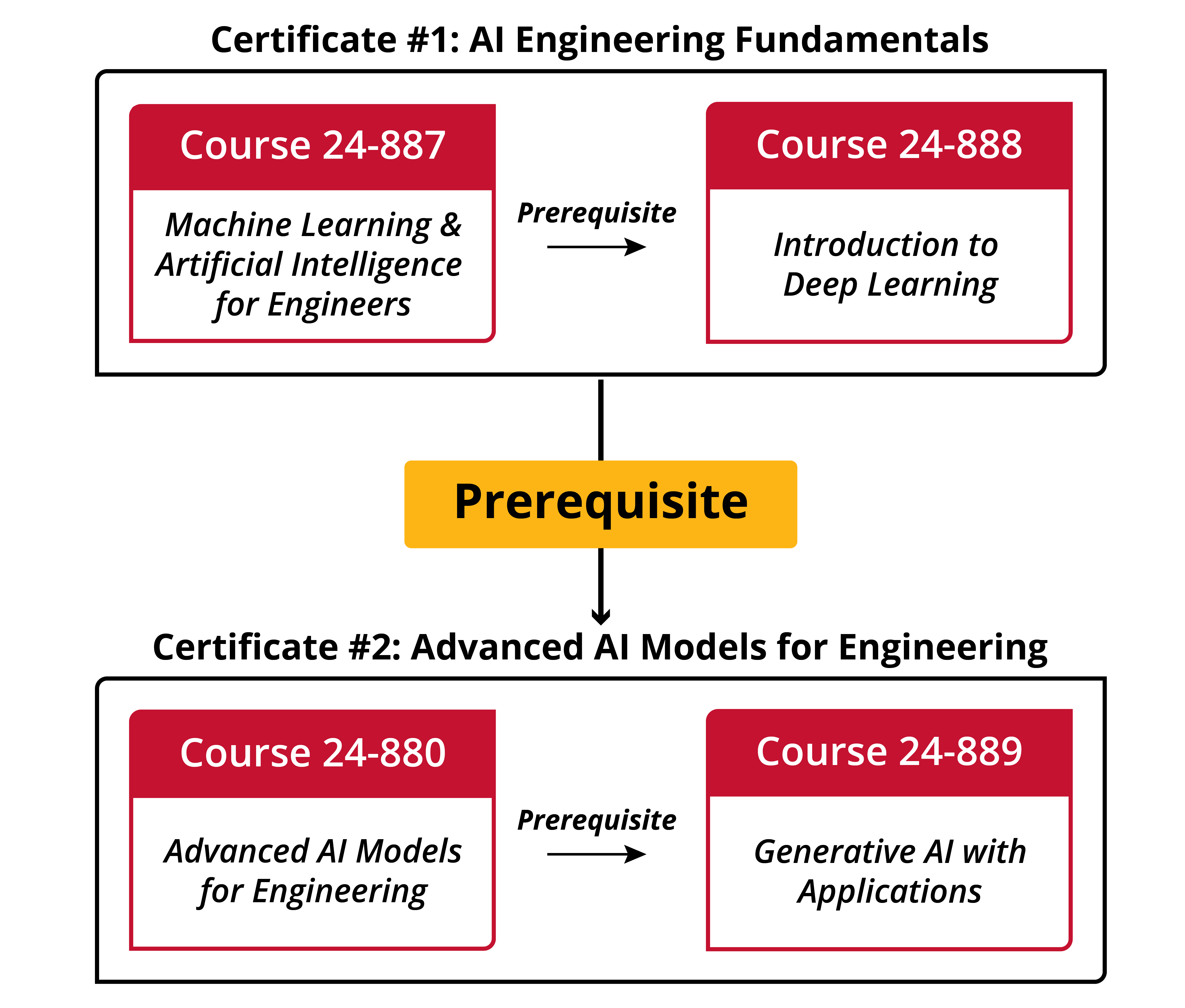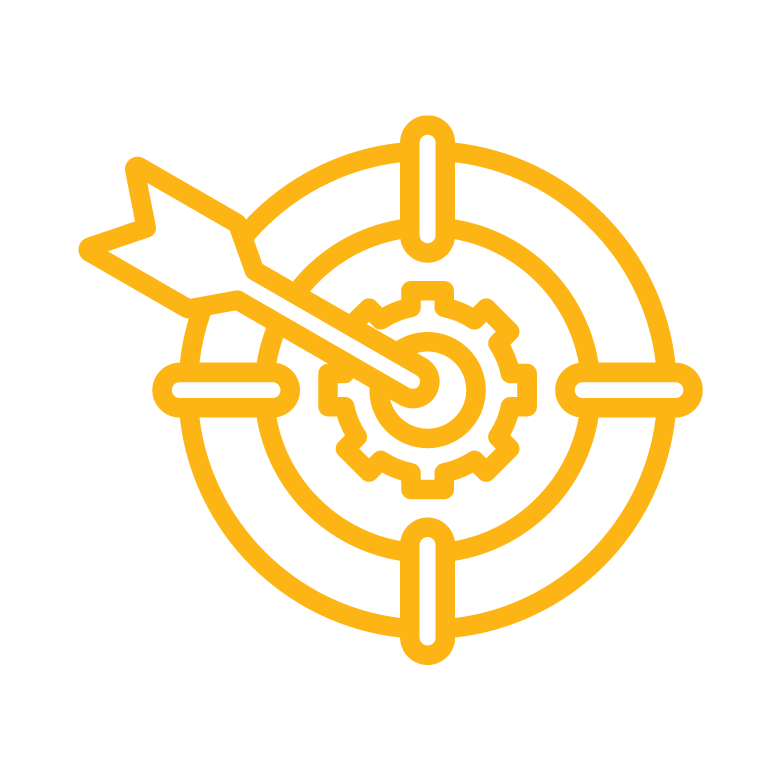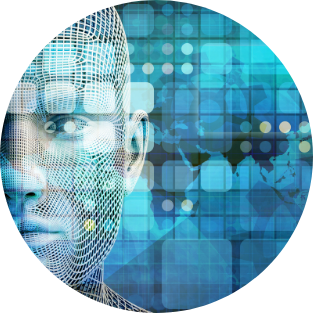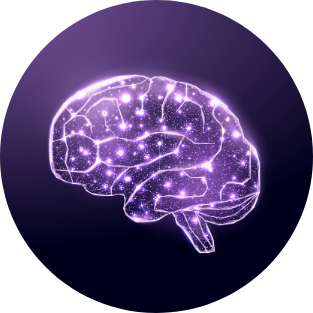Cutting-Edge Curriculum
Preparing engineers for an industry shift to AI
The engineering industry is experiencing a monumental shift toward artificial intelligence. At Carnegie Mellon, our faculty is pioneering the use of AI in engineering and preparing the next generation of engineers to do the same.
By partnering with Learning Engineers, our faculty have designed an effective online learning environment where engineers can study, apply and implement the AI and machine learning techniques they will need to enhance their skill set, remain competitive in their industry, and make an immediate impact in their organization.
Curriculum Overview
Carnegie Mellon currently offers two credit-bearing, graduate-level certificates in the field of AI Engineering. The first certificate (AI Engineering Fundamentals) is a prerequisite for the second certificate and features the following course progression:

Individuals who meet the admission requirements are encouraged to apply for the first certificate in AI Engineering Fundamentals. After mastering foundational topics in this certificate and successfully completing the coursework, these individuals may choose to explore more complex topics in the second certificate called Advanced AI Models for Engineering. A curriculum overview for each certificate can be found below.
Graduate Certificate in AI Engineering Fundamentals
The online Graduate Certificate in AI Engineering Fundamentals includes two graduate-level, credit-bearing courses taught by expert CMU faculty and features the following course progression:
For Fall 2026 Start:
|
Semester |
Fall 2026 |
Spring 2027 |
|---|---|---|
| Course | Machine Learning & Artificial Intelligence for Engineers | Introduction to Deep Learning |
Each course will appear on your Carnegie Mellon transcript with the grade earned. To earn the certificate, you must successfully complete both courses in the program. However, if you are only interested in the first course, you may complete that course only and it will show on your transcript with the grade earned.
Course Descriptions:
1. Machine Learning and Artificial Intelligence for Engineers
Course Number: 24-887
Units: 12 units
Learn fundamental artificial intelligence and machine learning techniques for developing software that is foundational to next generation design and analysis tools. In this course, you will explore topics like supervised and unsupervised learning, feature engineering, model selection and optimization, dimensionality reduction, and ensemble learning, and then complete the course with an introduction to deep learning. You’ll not only learn the theory behind these techniques, but how to efficiently implement them as well.
2. Introduction to Deep Learning
Course Number: 24-888
Units: 12 units
Through hands-on activities, you will learn the foundations of deep neural networks, their applications to engineering tasks, and how to use deep learning to solve complex engineering problems. In this course, you will explore topics like convolutional neural networks, recurrent neural networks, long short-term memory, and generative adversarial networks.
Graduate Certificate in Advanced AI Models for Engineering*
The online Graduate Certificate in Advanced AI Models for Engineering includes two graduate-level, credit-bearing courses taught by expert CMU faculty. A curriculum map featuring the course progression of the certificate will be provided soon.
Each course will appear on your Carnegie Mellon transcript with the grade earned. To earn the certificate, you must successfully complete both courses in the program. However, if you are only interested in the first course, you may complete that course only and it will show on your transcript with the grade earned.
*Please note: the Advanced AI Models for Engineering graduate certificate is still in development, so course descriptions and learning outcomes are subject to change.
Course Descriptions:
1. Advanced AI Models for Engineering
Course Number: 24-880
Units: 12 units
Explore advanced AI models used in engineering applications. Topics in this course build upon the core deep learning models taught in the AI Engineering Fundamentals certificate and include: advanced variants of convolutional neural networks, graph neural networks, generative adversarial networks, neural operators, physics-informed neural networks, and diffusion models. By the end of this course, you should know how to use these models in a wide range of engineering applications including surrogate modeling, materials discovery, engineering design, manufacturing, and human-AI teaming.
Coursework emphasizes the theoretical foundations and the mathematical modeling of the introduced techniques along with the implementation and testing of these techniques in software. Assignments require knowledge of Python and PyTorch at the level used in 24-888 Introduction to Deep Learning.
2. Generative AI with Applications
Course Number: 24-889
Units: 12 units
This course focuses on generative AI models used in engineering applications and focuses on topics like diffusion models, foundation models, transformers and large language models. The course connects these algorithms to publicly available generative AI systems and teaches you how these systems can be tailored toward engineering applications. Each topic culminates in a mini-project where you will build upon existing software to design and implement these techniques focusing on an engineering application.
The coursework emphasizes the theoretical foundations and the mathematical modeling of the introduced techniques. Assignments include quizzes that assess a conceptual understanding of these topics as well as several guided projects that focus on software implementation, validation, and technical reporting. The assignments require knowledge of Python and PyTorch at the level used in 24-880 Advanced AI Models in Engineering.
Meet Our World-Class Faculty
Dr. Levent Burak Kara
Professor of Mechanical Engineering
Education: Ph.D., Carnegie Mellon University
Research Focus: Developing new computational analysis, design, and manufacturing technologies with wide-ranging applications in areas like mechanical CAD, topology optimization, additive manufacturing, electronics design, and bio-engineering. In his research, Dr. Kara combines principles of machine learning, optimization, and geometric modeling to develop new knowledge and computational software for use in next-generation design systems.
Research Lab: Visual Design and Engineering Lab
Dr. Amir Barati Farimani
Associate Professor of Mechanical Engineering
Education: Ph.D., University of Illinois at Urbana-Champaign
Research Focus: Applying machine learning, data science, and molecular dynamics simulations to health and bio-engineering problems. Dr. Farimani’s lab unites researchers with different backgrounds (including physics, materials science, mechanical engineering, bio-engineering, chemical engineering, and computer science) to bring the state-of-the-art machine learning algorithm to mechanical engineering.
Research Lab: Mechanical and AI Lab (MAIL)
Dr. Liwei Wang
Assistant Professor of Mechanical Engineering
Education: Ph.D., Shanghai Jiao Tong University
Research Focus: Developing machine learning algorithms, mechanics models, and multi-physics optimization methods for 3D/4D painting, smart structures, metamaterials, and multifunctional, programmable materials systems. His research group is exploring applications that can enhance human well-being and exten human capabilities, such as mechanical protective cloaks, minimally invasive surgery, flexible electronics, soft robotics, and mechanical computing.
Research Lab: Computational and Physical Intelligence Laboratory (CPhI Lab)
Dr. Francis Ogoke
Assistant Professor of Mechanical Engineering
Education: Ph.D., Mechanical Engineering, Carnegie Mellon University
Research Focus: Developing artificial intelligence and deep learning methods to enhance, understand and control engineering process. His work focuses on creating physics-informed deep learning methods to accelerate simulation-based insights, designing probabilistic frameworks for uncertainty analysis, and developing generalizable representation learning frameworks.
Research Lab: Mechanical and AI Lab (MAIL)

The Graduate Certificate in AI Engineering Fundamentals and the Graduate Certificate in Advanced AI Models for Engineering are offered by the Department of Mechanical Engineering (MechE), which is housed within CMU’s highly-ranked College of Engineering. MechE faculty members are highly distinguished in their field and many of them are currently collaborating on high-profile projects with AI and machine learning technology. Check out some of their work below.

Applying ML techniques to automate the design process of electronic circuits and chips
Using AI to design a better method for desalination and provide the world with drinking water
Comparing the effectiveness of human versus human-AI teams in the context of engineering
Using deep learning to research material transport in the brain, which could improve our understanding of disease development
The Building Blocks of Our Curriculum

Real-World Focused
In these programs, everything you learn serves a purpose—to help you solve real-world engineering problems. Throughout the coursework, you will practice solving problems in Jupyter Notebooks using least squares regression, support vector machines, decision trees, logistic regression, neural networks, clustering methods, dimensionality reduction techniques, ensemble learning techniques, and more. By the end, you will be able to describe and compare commonly used machine learning algorithms, explain their theoretical underpinnings, and use them to solve real-world engineering problems.

Hands-On Learning
As an engineer, you are a doer and a builder. In these programs, you will learn core concepts by implementing various machine learning algorithms from scratch (for example, in Python) and by using industry-standard packages. You will also apply mathematical foundations for machine learning, including multivariate calculus, linear algebra, statistics, and optimization. When you complete the coursework, you will feel confident formulating data-driven approaches to AI engineering problems and communicating these solutions with algorithms and write-ups.

Practical Problem Solving
The field of AI for engineering can include some “out-there ideas”—but in these programs, you’ll stay focused on what’s doable and relevant to today’s industries. Throughout the coursework, you will analyze practical engineering problems that will help you apply the machine learning concepts directly to your career, which will allow you to become more efficient, innovative, and successful in your approach and in the solutions you create.







